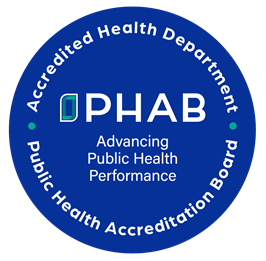
Vaccines assist in keeping a pregnant woman and her family healthy. Talk to your health care provider about vaccinations before you become pregnant.
Seasonal Flu Vaccination
Women are at increased risk of serious complications and death from the flu during pregnancy. Vaccinating pregnant women for influenza can protect both the women and their infants, especially infants aged <6 months who are not old enough to receive influenza vaccination. Inactivated influenza vaccine is safe and recommended for all women who are pregnant during influenza season, regardless of trimester.
For more information, see this CDC fact sheet and talk with your health care provider.
Recommended before Pregnancy
Before becoming pregnant, a woman should be up-to-date on routine adult vaccines, including the Tdap vaccine for prevention of pertussis (whooping cough). This will help protect you and your baby. In general, live vaccines should not be given within a month before conception. If needed, inactivated (killed) vaccines may be given at any time before or during pregnancy.
Recommended during Pregnancy
- Tdap--Pregnant women should get a pertussis booster shot (Tdap) with every pregnancy irrespective of their prior history of receiving Tdap. Immunize between 27 and 36 weeks gestation to maximize the transfer of maternal antibody to the infant. Other close contacts of infants: Due to increases in cases of pertussis infections, the recommendation is that birth hospitals and other immunizers provide Tdap to all close contacts of infants without documentation of Tdap vaccination, especially parents and childcare providers (including grandparents). Contacts should be immunized before mother and baby are discharged after birth, regardless of when the contacts received any prior doses of Td.
- Flu vaccine--It is very important, for a woman who is pregnant during flu season to receive the inactivated flu vaccine. A pregnant woman who gets the flu is at risk for serious complications and hospitalization.
Recommended after Pregnancy
It is safe for a woman to receive vaccines right after giving birth, even while she is breastfeeding.
- Tdap--A woman who has not received the Tdap vaccine yet should be vaccinated right after delivery. See above regarding Tdap for other close contacts of infants.
- MMR and/or Varicella Vaccine--A woman who is not immune to measles, mumps and rubella and/or varicella (chickenpox) should be vaccinated before leaving the hospital.
- Flu vaccine--If you have your baby before getting your flu shot, you still need to get vaccinated. You, or others who care for your baby, may get the flu, and pass it to the baby. Because babies younger than 6 months are too young to receive the vaccine, it is important that everyone who cares for your baby get a flu vaccine, including other household members, relatives, and babysitters.
Information about Individual Vaccines: Vaccine Information Statements (VISs) are information sheets produced by the Centers for Disease Control and Prevention (CDC). VISs explain both the benefits and risks of a vaccine. Prior to vaccine administration, a VIS must be provided for all vaccines identified by Federal law.
The most up-to-date collection of VISs is available at www.immunize.org/vis/
Additional information about individual vaccines is available at: http://www.vaccineinformation.org/
Protecting Your Infant
Did you know that your baby gets disease immunity (protection) from you during pregnancy? But this protection is temporary and only for the diseases that you are immune to. Protect your new baby and learn about infant immunizations.


